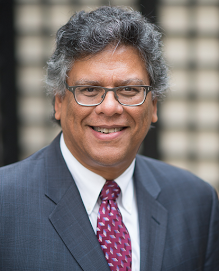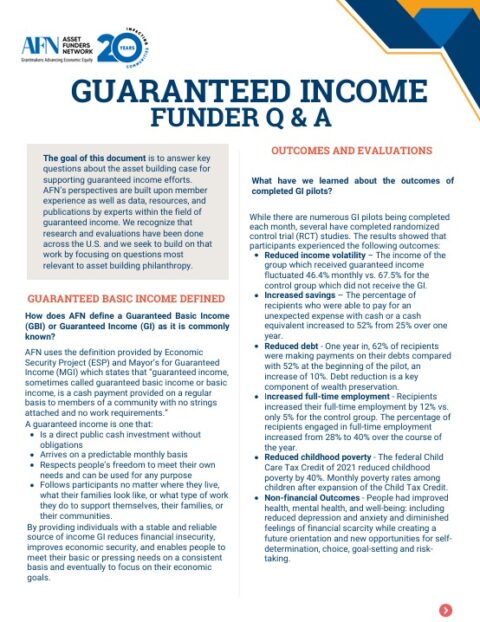 FROM THE PRESIDENT AND CEO
FROM THE PRESIDENT AND CEO
JULY 2021
AFN members are committed to advance equitable wealth-building that increases upward mobility and intergenerational wealth transfer among Black, Latinx, Indigenous, Asian and Pacific Islander households. AFN presented this framework in our signature brief “Relief to Resilience.” We compiled the recommendations from past studies, discussed approaches with members across the nation, and relied on the evidence. In it, we gathered together ideas, challenged doing business as it was pre-pandemic, and pulled together both recommendations and efforts by our members to move to a new, more equitable economy. It is our plan to continue highlighting additional efforts by members to help inform your own thinking and implementation.
In the end, local and national economic resilience requires investments to challenge that which restrains small business growth, reduces economic stability, stifles upward mobility, and makes the promise of opportunity to our youth ephemeral. AFN members believe that the existing racial, ethnic, and gender wealth gaps and economic exclusion are disparities engineered by policies and practices built on a foundation of structural racism, sexism, ethnocentrism, and classism. Many of these policies and practices weave their way into our assumptions of the American dream and opportunity. Without an equity and anti-racist analysis guiding change efforts, these baked-in discriminatory attitudes that have systemically limited economic opportunity, will continue to limit financial security and overall well-being for those who are “othered.”
Small and large grantmakers can change that. To facilitate greater economic security for families today and in our children’s and grandchildren’s generations, philanthropy will lead by centering the goals of furthering equity and dismantling structural racism and sexism. They will also be called upon to model patience — acknowledging that long term change involves both the waves of change that a rebuilding economy potentially provides, and the reality that sustained systemic/societal change takes time before it produces different economic and mobility outcomes.
Patience and consistent commitment to coherent equity and antiracist investments might be our greatest challenge. For years, Philanthropy has sought fairly-immediate outcomes to justify funding. They also have discouraged long term impacts by changing priorities before the goals are met. Non-profit grantees and others have followed that lead. The even shorter attention span of far too many public officials, driven by fiscal or election cycles, made impatience for long term change even more prevalent. It is heartening to witness so many AFN members acknowledge and act on the need to change this model of funding.
Systemic change requires changing the narrative, testing the ways to achieve change, challenging and reforming assumptions, changing policies and practices, and leading public policy in the desired direction. Operationalizing all of that requires time and effort by funders, and for many, an extraordinary level of patience and principled consistency.
At AFN, we recognize that the kind of change needed to achieve economic resilience will require sustained alignment between intentions, strategies, practices, actions, and long term results, both internally and externally. It is not politically expedient. Nor is it likely to be embraced by those who see change as a threat given their austerity framing. Many others, who fear the consequences of change, will criticize and attack philanthropic efforts to achieve an equitable economy. Others who support change will express disappointment at anything that is not immediate progress. Coherence of intent and actions and steadfastness to long-term economic equity and anti-racist principles by philanthropy will increase the chances of realizing the short- and long-term impacts. Ongoing, at times difficult, assessment and accountability to reimagine and rebuild better and more equitably will require “all hands on deck” from philanthropy, financial institutions and grantees who working together locally and nationally will help define sustained change.
AFN will continue to elevate local efforts and ideas. Recent examples include addressing the inequity in the care economy or making the childcare tax credit a permanent tax policy. Our Peer to Peer webinars will explore more ideas. To AFN members, philanthropy can lead us on the pathway to hope and greater shared prosperity.
Join AFN to contribute to this effort and to have your efforts shared with peers and elevated as models.


